Introduction
The quality of your sleep depends largely on your evening routine. A series of soothing pre-bedtime rituals can make it easier to fall asleep and guarantee a deep, restorative sleep. However, many factors can disrupt this crucial moment: stress, screens, poor diet or irregular habits.
Studies show that establishing a regular routine helps regulate the body clock and significantly improves sleep quality. According to Statistique Canada, “Regular bedtimes and rising times are associated with better sleep quality.” (Statistique Canada)
In this article, discover 10 effective, scientifically validated rituals to help you fall asleep quickly and enjoy a restful night's sleep.
The benefits of a regular evening routine
Having a structured sleep routine helps prepare your body and mind for rest. It reinforces the circadian rhythm (the internal biological clock) and reduces the time it takes to fall asleep. A regular routine also improves :
- The quality of deep sleep
- Reducing night-time awakenings
- Stress and anxiety management
These benefits are confirmed by studies showing that a stable routine reduces the risk of insomnia and improves general well-being.
1. Establish a regular bedtime
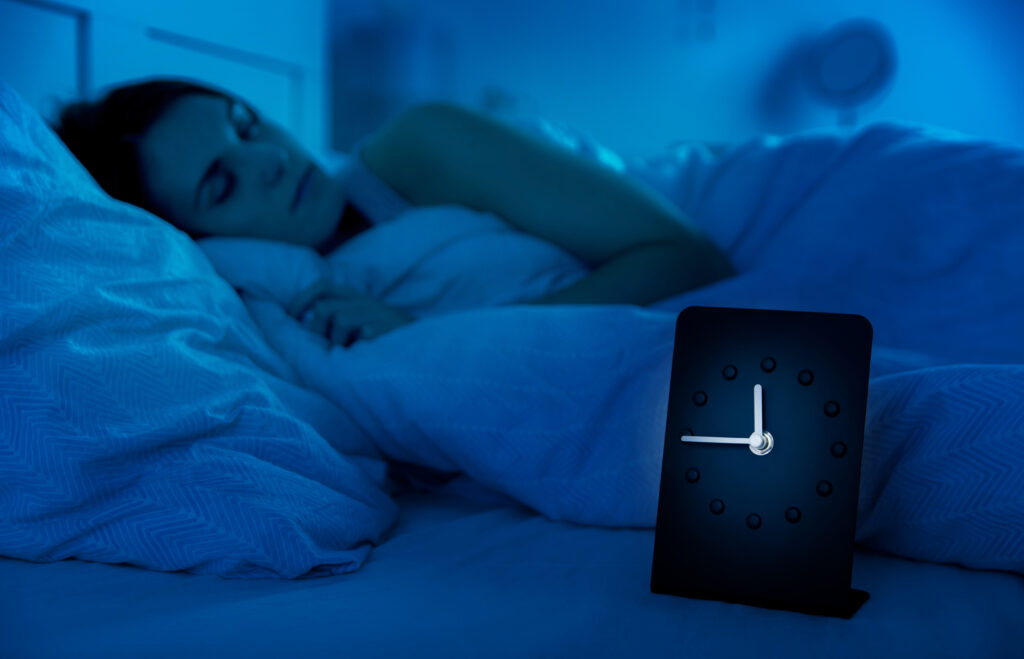
Maintaining a consistent bedtime and wake-up schedule is one of the most effective ways of regulating your circadian rhythm.
Why does it work?
Your body has an internal clock that works in 24-hour cycles. By going to bed and getting up at the same time every day, you reinforce this natural cycle, making it easier to fall asleep and wake up.
Practical advice
- Set a bedtime that allows you to sleep between 7 and 9 hours a night.
- Maintain this rhythm even at weekends to avoid disrupting your biological clock.
2. Limit exposure to screens before bedtime

Blue light from screens (phones, tablets, computers, televisions) disrupts the production of melatonin, the hormone that regulates sleep.
Why is this important?
Melatonin is essential for signalling to your body that it's time to sleep. Blue light inhibits its production, delaying sleep and reducing sleep quality.
Practical advice
- Avoid screens for at least 1 to 2 hours before going to bed.
- Choose relaxing activities such as reading, listening to soft music or meditation.
“A digital curfew with screens turned off one to two hours before bedtime is recommended to improve sleep quality.”
Dr. François-Marie Caron (Le Monde)
3. Practice relaxation techniques
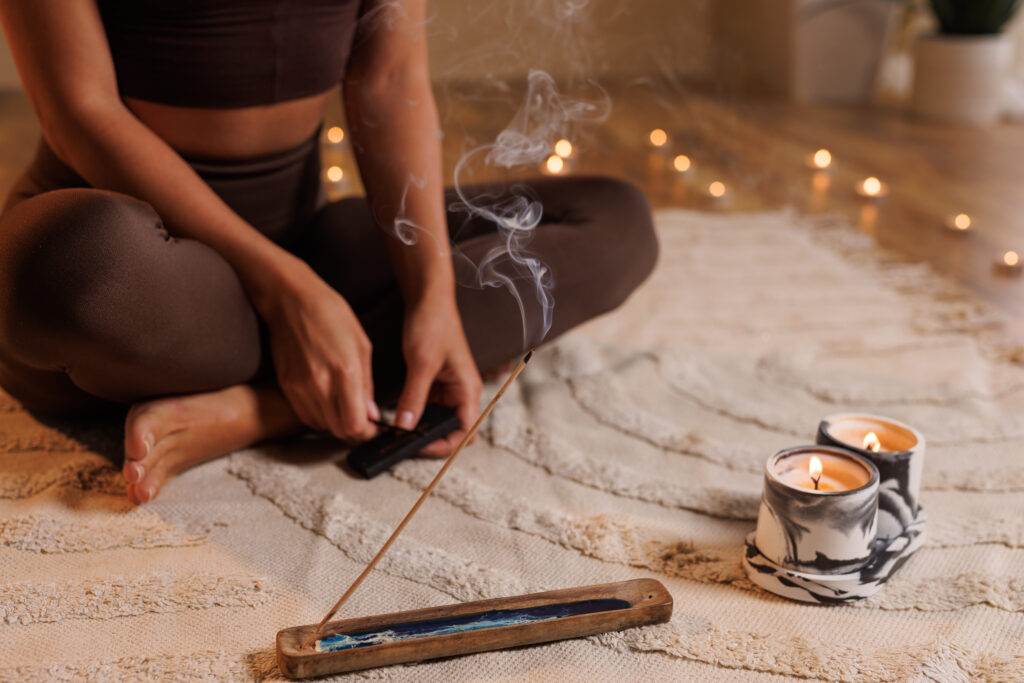
Relaxation techniques reduce stress and calm the nervous system, making it easier to fall asleep.
Recommended techniques
- Breathing 4-7-8 :
- Inhale deeply for 4 seconds.
- Hold your breath for 7 seconds.
- Exhale slowly for 8 seconds.
Repeat this sequence 4 times.
- Guided meditation or mindfulness :
Use applications such as Petit Bambou or Calm for bedtime meditation sessions.
“4-7-8 breathing helps calm the nervous system and promotes sleep.”
Dr. Andrew Weil (Authentico)
4. Create an environment conducive to sleep
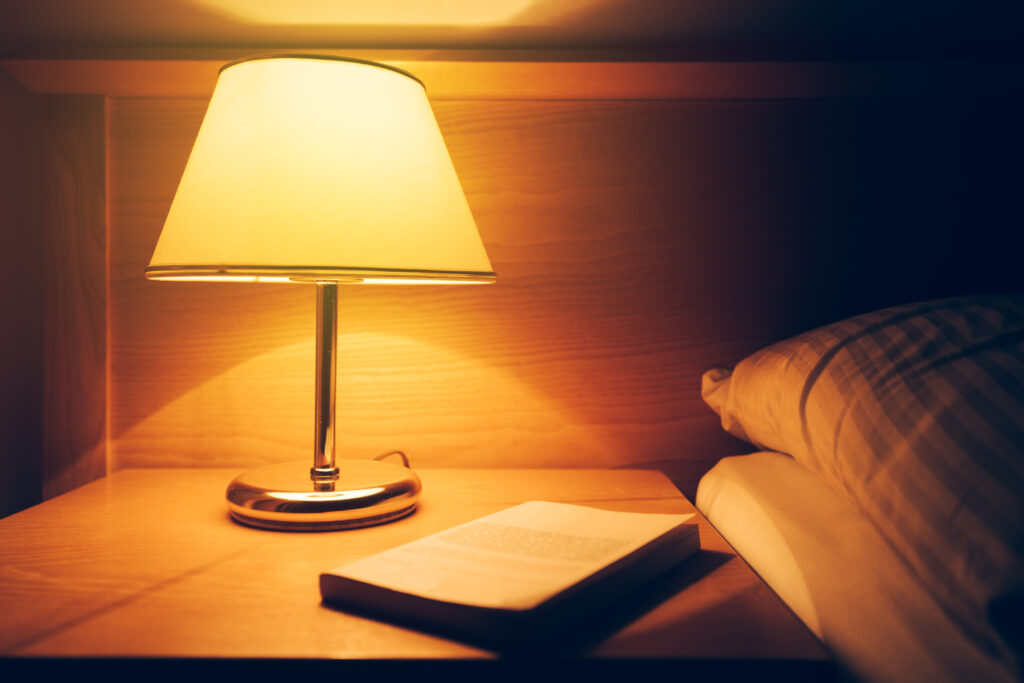
The environment in which you sleep has a direct impact on the quality of your sleep.
Key factors
- Temperature : The chamber must be kept at a temperature of approx. 18°C.
- Darkness : Use blackout curtains or an eye mask.
- Quiet : Use earplugs or a white noise machine if necessary.
- Quality bedding : A mattress and pillow adapted to your morphology help you get a good night's sleep.
5. Avoid stimulants in the evening

The use of stimulants can delay sleep onset and reduce sleep quality.
Substances to avoid
- Caffeine : Coffee, tea, soft drinks, energy drinks (avoid after 2pm).
- Nicotine : Stimulates the nervous system and delays sleep.
- Alcohol : Even if it causes initial drowsiness, it disrupts sleep cycles.
Practical advice
- Replace evening coffee with a relaxing herbal tea such as chamomile or verbena.
6. Adopt a sleep-friendly diet
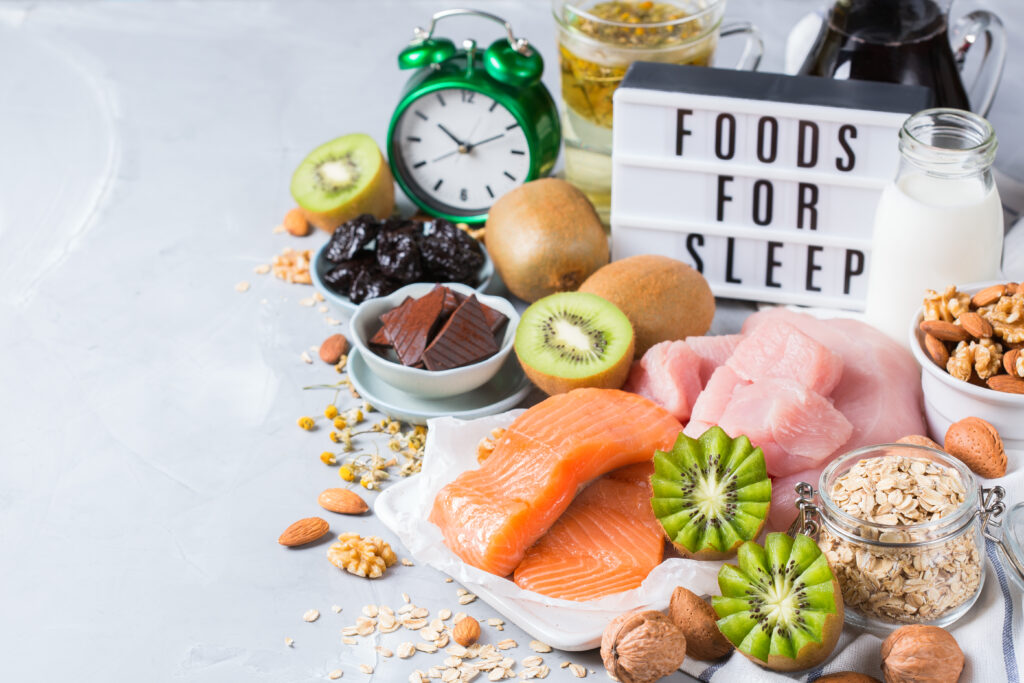
Your last meal of the day plays a crucial role in the quality of your sleep. Some foods help you to relax and fall asleep, while others can interfere with your rest.
Foods to choose
- Rich in tryptophan : Turkey, chicken, bananas, dairy products. Tryptophan is a precursor of melatonin, the sleep hormone.
- Rich in magnesium : almonds, cashews, spinach. Magnesium helps relax muscles and reduce stress.
- Complex carbohydrates : Wholegrain rice, oatmeal, quinoa. They stabilize blood sugar levels and promote the release of serotonin.
Foods to avoid
- Heavy or fatty meals : They slow down digestion and can cause gastric reflux.
- Spicy foods : They raise body temperature and can disrupt sleep.
Practical tip : Take your dinner at least 2 to 3 hours before bedtime for optimal digestion.
7. Integrate regular physical activity

Physical exercise improves sleep quality by reducing stress and making it easier to fall asleep. However, the timing of your sessions is essential.
When should I exercise?
- Morning or afternoon : Exercise during the day regulates the biological clock and reduces the time it takes to fall asleep.
- Avoid intense evening sessions : Late-night physical activity can increase heart rate and delay sleep.
Recommended activities
- Moderate cardiac fitness : Fast walking, cycling, swimming.
- Relaxing exercises : Yoga, gentle stretching, Pilates.
A regular program of physical activity contributes to deeper, more restful sleep.
8. Practice meditation and mindfulness
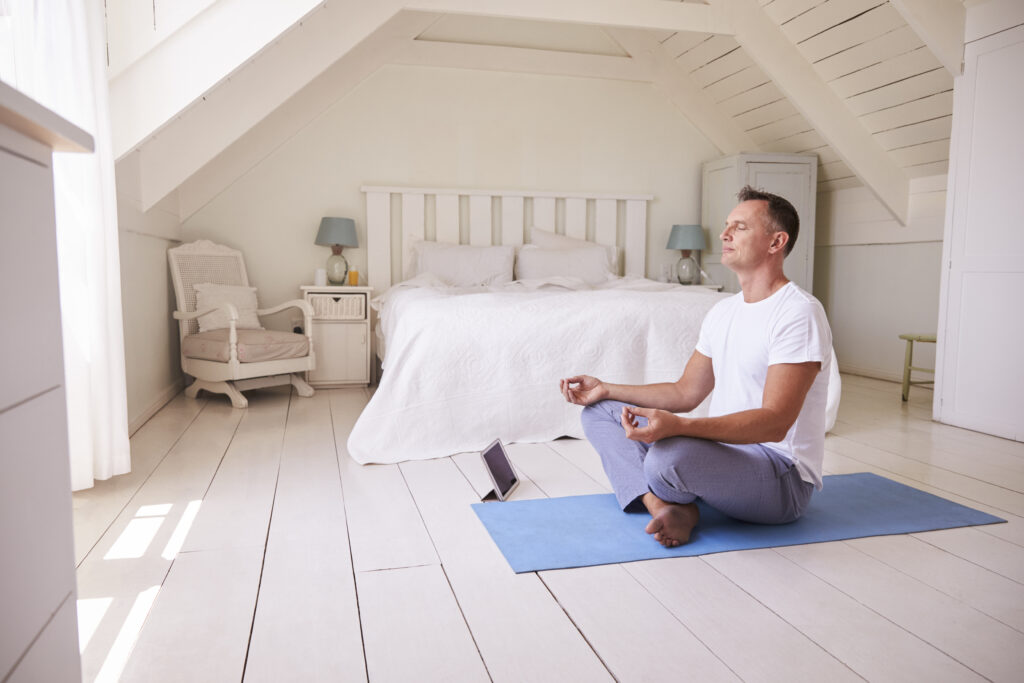
Meditation and mindfulness are effective tools for reducing stress and anxiety, two enemies of sleep.
Why does it work?
These practices soothe the nervous system and help disconnect from negative or intrusive thoughts before bedtime.
Meditation techniques
- Guided meditation : Use applications such as Calm, Petit Bambou or Headspace for relaxing sessions lasting 10 to 15 minutes.
- Body scan : A body scanning technique in which you focus your attention on each part of your body to release tension.
Practical tip : : Incorporate a short meditation session into your evening routine to prepare your mind for sleep.
9. Limit daytime naps

Naps can be beneficial, but they must be taken in moderation to avoid disrupting nocturnal sleep.
Best practices for naps
- Ideal duration : Limit your naps to 20-30 minutes. A longer nap can lead to sleep inertia (feeling tired when you wake up).
- The perfect moment : Take your naps in the early afternoon, before 3 p.m., to avoid delaying your bedtime.
If you experience persistent fatigue despite an adapted sleep routine, consult a professional to assess possible sleep disorders.
10. Consult a specialist if problems persist

If, despite adopting these rituals, you continue to have difficulty falling asleep or maintaining restful sleep, it may be time to consult a specialist.
When to consult?
- Chronic insomnia : Difficulty sleeping several nights a week for more than three months.
- Frequent waking and daytime fatigue : Symptoms that may indicate a sleep disorder such as sleep apnea or restless legs syndrome.
Who to consult?
- General practitioner : For an initial assessment and recommendations.
- Sleep specialist : Pneumologist, neurologist or sleep center for in-depth diagnosis.
Conclusion
A structured evening routine is your best ally for falling asleep quickly and enjoying restful sleep. By applying these 10 rituals, you regulate your biological clock, reduce stress and create an environment conducive to rest.
To go further in monitoring your sleep, discover Apnolaban innovative platform that supports you with personalized monitoring tools and expert advice to optimize your quality of sleep.
👉 Take control of your nights with Apnolab! Discover Apnolab




